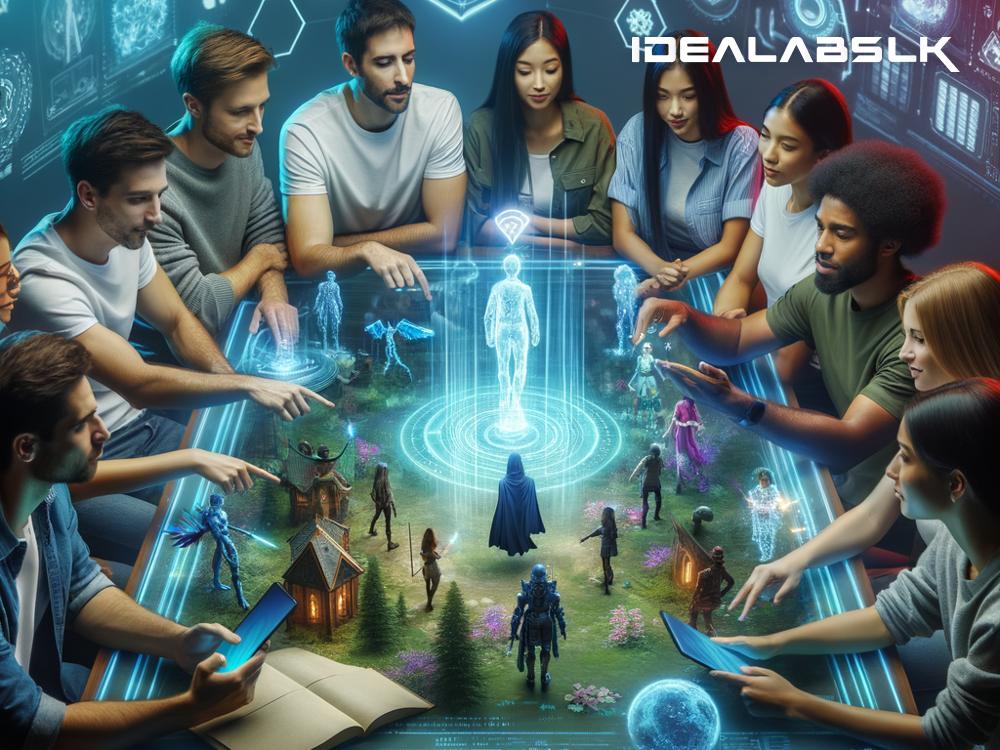The Future of AI in Interactive Fiction: How AI Will Allow Players to Create Their Own Stories in 2025
Interactive fiction has long been a favorite among gamers and readers alike, offering a unique blend of storytelling and gameplay. But imagine a future, just a few years from now in 2025, where the line between writer and reader blurs even further, thanks to Artificial Intelligence (AI). The future of interactive fiction lies in a groundbreaking evolution – AI-driven narratives that adapt, learn, and evolve based on player decisions, allowing for an unprecedented level of story personalization. Let's dive into this fascinating future.
A Personal Touch
Currently, most interactive fiction relies on pre-written paths. The choices you make nudge your journey along these fixed narratives. But what if the game could write itself as you play? AI in 2025 is predicted to become sophisticated enough to generate dynamic story elements in real-time. This means the virtual world reacts truly uniquely to each player, crafting storylines and dialogues on the fly that reflect your decisions, style, and character interactions. Every playthrough could genuinely be a personal, one-of-a-kind experience.
Emotional Intelligence
One of the most exciting advancements we’re looking at is AI that can interpret and respond to player emotions. Future interactive fiction may use AI to gauge your emotional responses to certain situations and adjust the narrative accordingly. This could be achieved through analyzing player actions, text responses, and even voice or facial expressions in more integrated gaming environments. So, if the story senses you’re feeling sad, it might endeavor to cheer you up, or if you’re bored, introduce a plot twist to reengage you.
The End of the Game Master?
In traditional tabletop role-playing games, the Game Master (GM) guides the narrative. The future of AI in interactive fiction possibly hints at an electronic version of the GM. This AI could manage entire worlds, control non-player characters (NPCs), and adjust storylines in real-time with an understanding of narrative pacing, drama, and character development, all tailored to the preferences of the player. It’s like having a personal storyteller at your disposal, ready to adapt the tale to your every whim.
Language and Dialogue
The AI of 2025 is also set to revolutionize how we interact through dialogue in games. Today’s interactive fiction often limits dialogue choices, simplifying complex emotions or responses to fit predefined options. Future AI will enable much more nuanced conversations, understanding natural language inputs from players and responding in kind. This could allow for deeper character development and more intricate relationships to form as part of the narrative, making every conversation a pivotal point in your unique story.
Collaborative Storytelling
Imagine co-writing your adventure with the AI itself. The future points towards a collaborative storytelling process where the player and AI bounce ideas back and forth. The AI could suggest story arcs or moral dilemmas based on your past decisions, or you might prompt the AI to explore specific themes or character arcs. This partnership could lead to stories richer and more complex than either a sole human writer or an AI could create independently.
The Risks and Challenges
With these exciting advancements come certain challenges. Ensuring story coherence and maintaining a balanced narrative pace when every player's journey is unique will be a significant task for future AI. Privacy and emotional security are also important, as systems that interpret emotions and reactions must do so ethically and safely.
Conclusion
The future of AI in interactive fiction is a promise of limitless storytelling possibilities. By 2025, we're looking at a revolution in gaming and narrative experiences, where each player’s journey genuinely belongs only to them, shaped by their decisions, emotions, and creativity. This future will not only change how we play games but also how we think about stories, making us co-authors with the AI in creating complex, engaging, and personal tales. As we move towards this exciting horizon, one thing is clear: the stories of tomorrow are ours to create, with AI as our ever-adaptable companion in the art of storytelling.

